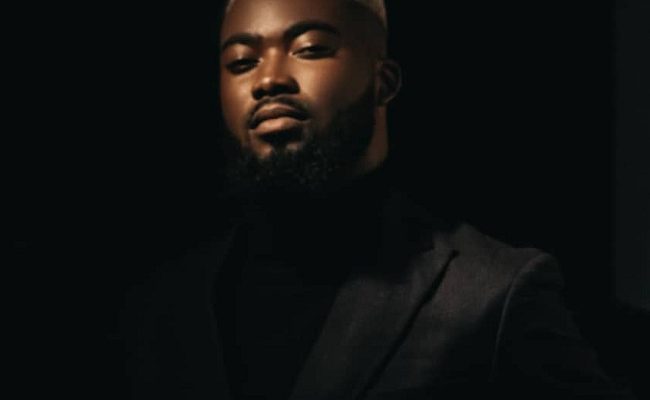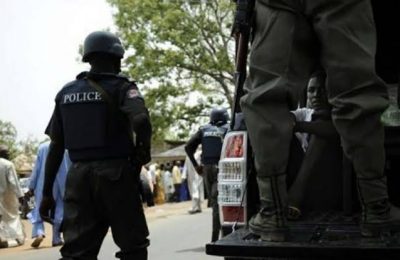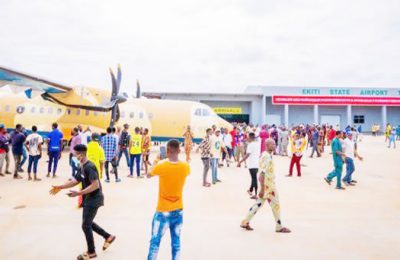United Kingdom-based Abdulsamad Saliu, also known as Damas Visuals, has established a unique voice in photography by deeply exploring identity, culture, and human experience. In this interview by KINGSLEY ALUMONA, he speaks about issues surrounding photography in Nigeria, the UK, his work and life.
How and when did your journey and career as a creative photographer begin?
My photography journey started quite organically at an early age. Growing up, I was always fascinated by how images could freeze moments and convey emotions without words. This interest was more than a hobby — it was a passion that followed me through my formative years. However, it was not until after completing my undergraduate degree in Architecture, at Kaduna Polytechnic in 2019, that I decided to pursue photography seriously.

The COVID-19 pandemic in 2020 was a significant turning point for me. With the lockdown, I had ample time to delve deeply into photography and explore its potential as a medium of storytelling. I realised that photography could transcend mere visual appeal; it could become a powerful tool for expressing complex stories and emotions.
To build on this realisation, I began my formal training through a three-month internship with Cypher Media. This experience was crucial for learning the technical aspects of photography. Subsequently, I relocated to Lagos in 2020, where I worked with leading creative photographers, including Edos Artistry. This phase of my career was pivotal in broadening my perspective and honing my skills, particularly in using photography to narrate compelling stories. Each photograph I take aims to communicate something deeper, transcending the immediate moment and capturing a broader narrative.

What circumstances inspired you to leave Nigeria for Scotland?

I relocated to the UK in 2022 to further my studies in project management at Robert Gordon University, Aberdeen. After graduating with distinction in Architecture, I wanted to broaden my skill set and explore project management, as I saw that it aligned with my architectural background and ambition in the creative industry. I had always been curious about how the arts, design, and management intersect, and Scotland seemed like a perfect place for that exploration.
The decision to move was also driven by my desire to gain international exposure. While Nigeria has a rich creative scene, I wanted to challenge myself by stepping out of my comfort zone, learning from a new cultural environment, and expanding my career opportunities.
In Europe and America, photography is a well-sought course studied up to the postgraduate level, but in Nigeria, it is rarely taught at the tertiary education level. What is responsible for this phenomenon?
The lack of formal photography education in Nigeria limits opportunities for aspiring photographers to gain professional skills. Higher education stakeholders should introduce photography as a specialised course to nurture creative talents and promote the industry. Establishing photography programmes would provide students with the technical and artistic knowledge needed to compete globally. Collaborating with experienced professionals and international institutions for curriculum development could also enrich the learning experience. By doing this, Nigerian universities can elevate the perception of photography as a viable career and contribute to the growth of the creative economy.
Most Nigerians believe that, politically and economically, the country is not faring well. Do you think that ‘japa’, like you did, is the best option for such Nigerians?
Relocating, or ‘japa’ as we call it, can be a good option if you have a clear plan and something valuable to contribute. It is not just about leaving Nigeria, but about what you bring to the table when you arrive at your new destination. If you are prepared and willing to adapt, it can open up opportunities. However, I believe change can also come from within Nigeria, and not everyone needs to leave to find success. It is about finding where your path leads you and making the most of it.
What is the role of photography in Nigeria’s human and socioeconomic development?
Photography plays a vital role in shaping societal perspectives and fostering development by documenting cultural heritage, social issues, and economic progress. It serves as a powerful storytelling tool that can raise awareness about important challenges such as poverty, inequality, and environmental concerns. By capturing these realities, photographers can influence public opinion and inspire action. Additionally, the photography industry contributes to Nigeria’s economy through job creation and by attracting international attention to Nigerian art and culture.
You have practised photography in Nigeria and the UK. What do you think Nigerian career photographers can do to be on par, in terms of patronage and acceptance, with their UK counterparts?
Nigerian photographers can bridge the gap by focusing on personal branding, improving their technical skills, and engaging in global collaborations. Embracing digital platforms to showcase their work internationally can also attract a wider audience. Additionally, creating unique storytelling styles that reflect Nigeria’s rich culture can differentiate them in the global market. Photographers should seek mentorship and professional training to enhance their craft while educating clients on the value of quality photography, which will ultimately boost patronage and acceptance locally and internationally.
Which themes and societal realities are dominant in your creative work?
A major theme in my work is human connection — how people relate to their environments and each other. I focus heavily on portraying identity, culture, and migration, especially as it relates to the African experience. I am interested in capturing moments that tell the story of resilience, community, and belonging, particularly among immigrants and marginalised groups.
I also explore themes around mental health and solitude. Growing up in Nigeria and then relocating to the UK, I have been able to observe how people navigate these spaces — physically, emotionally, and socially. This observation drives me to capture stories that speak to the complexities of migration, displacement, and the struggle for self-expression in unfamiliar territories. It is about creating a visual narrative that reflects not just the outer appearances but the inner worlds of the people I photograph.
As a Nigerian immigrant, how do your cultural dispositions inspire the work you do in Scotland and how do they view your work over there?
Being Yoruba and Nigerian inform every aspect of my creative process. My cultural background teaches me to value stories and experiences that might otherwise be overlooked. In Yoruba tradition, storytelling is an art form passed down through generations, and I try to bring that depth into my photography. Whether it is the colours, textures, or the way I frame my subjects, my cultural roots come through in my work, even if subtly.
In Scotland, the reception has been quite positive. People are intrigued by the stories I tell through my lens because they offer a perspective that is both foreign and relatable. The African diaspora experience, though unique, resonates with many others who have experienced migration or displacement. I believe my work stands out because it merges two worlds — my Nigerian heritage and my experiences in Scotland — and this fusion brings a fresh narrative to the creative scene here.
Do you see other creatives and professional photographers in Scotland, as your competitors? And how are you developing and upskilling yourself to fare well in the UK creative industry?
I do not see other photographers as competitors because I believe we all have unique stories to tell. Each photographer brings a different perspective, and that diversity is something to celebrate, not compete with. I see my peers more as collaborators, people I can learn from and grow with. The UK creative industry is vast, and there is enough room for everyone’s voice.
In terms of developing myself, I am constantly learning. I attend workshops and exhibitions, and collaborate with other creatives to stay updated on trends and techniques. The UK offers many opportunities for networking and growth, and I take advantage of those to improve my skills both in photography and in the business side of things.
What other things do you do?
While photography is my passion and my main creative outlet, I have also worked in various roles since moving to the UK. I have taken on jobs in customer service, worked as a room attendant, and even as a project coordinator. These roles have not only helped me stay grounded but have also given me a broader perspective on life and work here in the UK. Each job has contributed to my development as a person and a professional, helping me build resilience and adaptability, which is also reflected in my photography.
Do you have relatives or family in Aberdeen?
Yes. I have family and friends here in the UK, though not directly in Aberdeen. My family in London has been a great source of support. They have encouraged me to pursue my dreams and have provided emotional and financial backing when needed. Having a strong support system is essential, especially as an immigrant navigating a new culture and career path.
So far, how are you and your photography business faring in Scotland? And where do you see yourself in five years in the UK?
Things are going well. I’ve been able to build a solid portfolio and gain recognition, including being nominated as one of Scotland’s Creative of the Year in 2024. This has opened doors for me in terms of exhibitions and publications, which is exciting.
In five years, I see myself growing my brand further and establishing a studio that serves as a creative hub for African and international artists. I want to use my platform to amplify diverse voices and stories, both in the UK and back in Nigeria.








